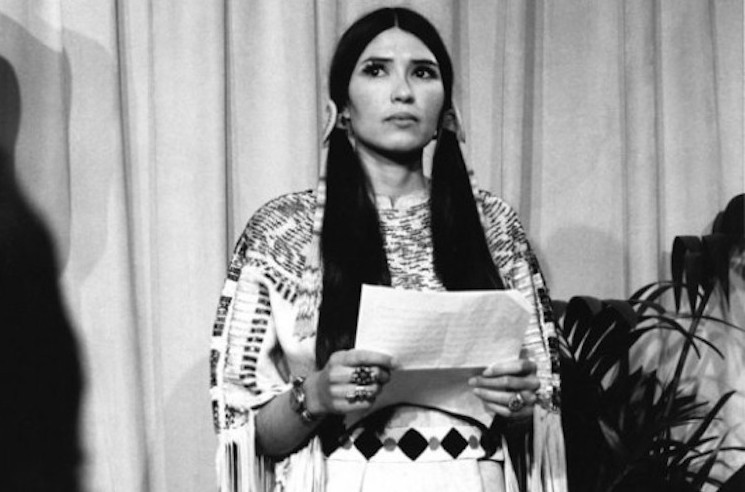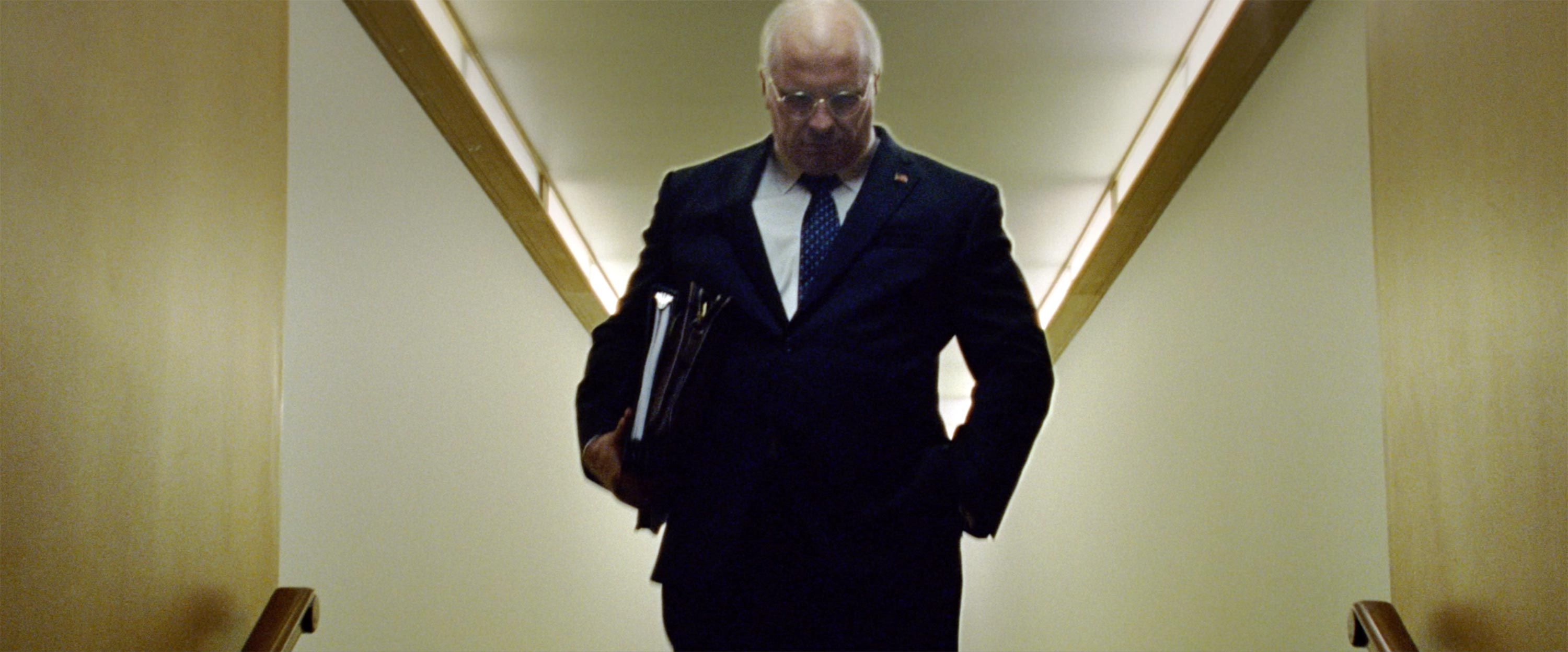
1927:
The first ever US Academy Awards are held. First World War-based thriller Wings wins the first ever Best Picture Oscar.
1933:
In a scene reminiscent of the early scenes of the 2001 comedy film Zoolander, comedian Will Rogers opens the Best Director envelope and says, “Come and get It Frank!” Unfortunately, there were two directors called Frank nominated in that year. Frank Capra was half way to the podium before Rogers clarified that it was Frank Lloyd, director of Cavalcade who had won, not Capra. Happily, Frank Capra later won for Mr Deeds Goes To Town in 1936. In future years, the awards are always announced in a heavily scripted way, in the hope of preventing such an embarrassing error ever happening again.
1940:
Hattie McDaniel becomes the first black woman to win an acting Oscar (Best Supporting Actress: Gone With The Wind). Having been barred from the film’s Atlanta premiere due to the state’s racial laws, she is made to sit at a segregated table during the Oscar ceremony. She is only allowed to attend at all due to the Ambassador Hotel making an exception to its usual strict ‘no blacks’ policy. Her white agent sat with her at the ceremony.

1941:
How Green Is My Valley beats Citizen Kane for Best Picture. Citizen Kane subsequently became the most critically acclaimed film of all time.
1964:
Sidney Poitier (Lillies Of The Field) becomes the first black actor to win an Oscar.
1968:
A very rare occurrence: A tie in the Best Actress category. Barbara Streisand wins for Funny Girl. Katharine Hepburn also wins for The Lion In Winter (her third). As most Oscars are determined by votes from several thousand Academy members, a tie is a frequent possibility.
1970:
George C. Scott wins Best Actor for Patton. He chooses not to attend and instead stays home and watches a ball game on the other channel.

1972:
Native American Sacheen Littlefeather surprises viewers by attending to reject Marlon Brando’s second Oscar won for The Godfather on his behalf. t “He very regretfully cannot accept this very generous award. And the reasons for this being are the treatment of American Indians today by the film industry,” she says. She is actually not a political activist herself but a small-time actress who later appears in Playboy magazine.

1973:
In a famously impromptu remark, host David Niven comments on a streaker who disrupts the ceremony: “Isn’t it fascinating to think that probably the only laugh that man will ever get in his life is by stripping off and showing his shortcomings?

1974:
Robert De Niro wins his first Oscar playing Vito Corleone in The Godfather Part II. Marlon Brando played the same character in 1972’s The Godfather. It is the only time two actors have won Oscars for playing the same (fictional) person.
Tatum O’Neal becomes the youngest ever person to win a competitive Academy Award (Best Supporting Actress – Paper Moon). She is ten (she turned nine during filming).
1978:
Annie Hall beats Star Wars for Best Picture. Director and star Woody Allen begins a long tradition of not attending the Oscars (choosing to perform jazz music elsewhere on Oscar Night instead). He finally attends in 2002.
British actress Vanessa Redgrave (Best Supporting Actress: Julia) is audibly booed after she attacks opponents of her documentary film, The Palestinian as “Zionist hoodlums”. She also attacks former President Nixon.
1979:
Jane Fonda (Best Actress: Coming Home) uses sign language during her acceptance speech to highlight awareness of deafness. It is her second Oscar: she also won for Klute in 1972.
1981:
Robert De Niro wins his second Oscar for Martin Scorsese’s Raging Bull. The timing is awkward as the new President, former actor, Ronald Reagan has just been shot and wounded in an assassination attempt. His attempted assassin John Hinckley was reportedly inspired by Scorsese and De Niro’s 1976 film Taxi Driver and a desire to “impress” his teenaged co-star Jodie Foster (she is not impressed).

1982:
Katharine Hepburn wins her fourth and final Oscar for On Golden Pond. No other actor, male or female, has ever won four Oscars. Cate Blanchett later wins one for playing Hepburn herself in The Aviator in 2004.
Hepburn’s co-star Henry Fonda becomes easily the oldest ever Best Actor winner at 76. Too ill to attend the ceremony, his daughter and co-star, Jane Fonda collects the award on his behalf (he dies a few months later).
Screenwriter Colin Welland shouts “The British are coming!” following the success of Chariots of Fire this year. In fact, the next decade will prove a very lean one for British cinema, although Gandhi does win Best Picture in 1983.

1984:
Sally Field wins her second Oscar for Places In My Heart. “I haven’t had an orthodox career, and I’ve wanted more than anything to have your respect,” she says. “The first time I didn’t feel it, but this time I feel it, and I can’t deny the fact that you like me, right now, you like me!” Seen my many as overly sentimental, Field’s speech is often misquoted as: “You like me, you really like me!”

1991:
Whoopi Goldberg (Ghost) becomes only the second black actress to win Best Supporting Actress.
1992:
Silence of the Lambs wins in all of the “Big Five” categories: Best Film, Actor (Anthony Hopkins), Actress (Jodie Foster), Director (Jonathan Demme) and Adapted Screenplay. This is the only the third time this has ever happened (the previous films were 1932’S It Happened One Night and 1975’s One Flew Over The Cuckoo’s Nest).
Rumours abound that Jack Palance read out the wrong name during his announcement of the Best Supporting Actress winner Marisa Tomei (My Cousin Vinnie) In fact, though a surprise result, Tomei undoubtedly won. That said, Palance did seem to be in a somewhat “tired and emotional” state as he announced the award.

1993:
Couple Tim Robbins and Susan Sarandon use the Best Film Editing category as a political opportunity urging the government to let HIV-positive Haitians being held at Guantanamo into the US.
1994:
“Oh, wow. This is the best drink of water after the longest drought of my life.” Steven Spielberg (Best Director: Schindler’s List) finally wins. Schindler’s List is the first black and white film to win Best Picture since The Apartment (1960).
1995:
Tom Hanks wins two Best Actor Oscars in consecutive years for Philadelphia and Forrest Gump, a feat not achieved since Spencer Tracey in the 1930s, He delivers highly emotional acceptance speeches both times, inadvertently “outing” a high school teacher as gay in the first (a moment which later inspired the Kevin Kline film In and Out) and in the second stating “I feel like I’m standing on magic legs.”
Samuel L. Jackson (Pulp Fiction) loses the Best Supporting Actor Oscar to Martin Landau (Ed Wood). Lipreaders can see Jackson clearly says “shit” on hearing the announcement from 12 year old, Anna Paquin. Jackson is unrepentant afterwards, arguing he deserved to win.

1999:
George Clooney, Nick Nolte, Ed Harris and many other actors refuse to stand or applaud Elia Kazan’s Lifetime Achievement Oscar. The On The Waterfront director testified to the notorious House Committee on Un-American Activities in 1952
2002:
Halle Berry (Monster’s Ball) becomes the first black winner of the Best Actress Oscar.
2003:
Filmmaker Michael Moore (Best Documentary: Bowling For Columbine) provokes a mixed reaction with an attack on President George W. Bush: “We live in the time where we have fictitious election results that elects a fictitious President. We live in a time where we have a man sending us to war for fictitious reasons…Shame on you, Mr. Bush, shame on you. And any time you’ve got the Pope and the Dixie Chicks against you, your time is up.”
Adrien Brody (Best Actor: The Pianist) kisses actress Halle Berry on receiving his award.

2004:
The Lord of the Rings: The Return of the King becomes the third film to win eleven Oscars. The others are Ben-Hur (1959) and Titanic (1997). All About Eve (1950) and Titanic remain the most nominated films (14 each). The Return of the King is the only fantasy film to win Best Picture (no sci-fi film has ever won it) and only the second sequel (the first was The Godfather Pt II in 1974).
2007:
Martin Scorsese finally wins (Director: The Departed) after years of being overlooked. “Could you double check the envelope?” he quips.

2010:
A showdown between Kathryn Bigelow’s The Hurt Locker and James Cameron’s Avatar. The Hurt Locker wins Best Picture. Bigelow becomes the first woman to win Best Director (she and Cameron were married between 1989 and 1991).
2012:
The Artist is the first black and white film to win Best Picture since 1993’s Schindler’s List. Contrary to popular belief, it is not technically a silent film. Wings, the very first Best Picture winner, remains the only silent winner in this category.
Christopher Plummer (Best Supporting Actor: Beginners) becomes the oldest ever performer to win a competitive actor Oscar. He is 82.
Meryl Streep wins her 17th nomination (and her third win) for The Iron Lady joking: “When they called my name, I had this feeling I could hear half of America going, ‘Oh no. Come on… Her, again?’ You know. But, whatever.” No actor has ever been nominated as many times as Streep has: Katharine Hepburn won four times but was only nominated a still impressive 12 times. In 2018, Streep received her 21st nomination for The Post. Her other two wins were for Kramer Vs Kramer and Sophie’s Choice.

2013:
Daniel Day Lewis wins his third acting Oscar for Lincoln. Only five other actors have achieved three Oscar wins: Katharine Hepburn (who, as previously mentioned, won four), Meryl Streep, Jack Nicholson, Walter Brennan and Ingrid Bergman.
2014:
John Travolta messes up his introduction to a performance from Frozen by Idina Menzel: “Please welcome the wickedly talented, one and only Adele Dazeem,” he says.
2016:
The Oscars are widely criticised for a lack of racial diversity in the nominations.
Leonardo DiCaprio finally wins Best Actor for The Revenant.

2017:
In an embarrassing cock up, La La Land is briefly announced as Best Picture, instead of the actual winner, Moonlight. The mistake – which seems to have resulted from veteran actor Warren Beatty being given the card revealing La La Land actress Emma Stone’s Best Actress Oscar in error, and Beatty and Faye Dunaway’s understandably confused reaction – is only corrected after two minutes (“There’s a mistake. Moonlight, you guys won best picture…This is not a joke. Moonlight has won best picture”) by which time the La La Land team are midway through their acceptance speech.

Casey Affleck wins for Manchester by the Sea despite widespread controversy over sexual harassment allegations. Actress Brie Larson, an advocate of sexual assault victims, presents the award to Affleck, but seems unhappy with the result.
2019:
Comedian Kevin Hart steps down as host of the Oscars after controversy emerges over a slew of allegedly homophobic tweets he sent in the past. It is decided the Oscars will not have an official host for the first time since 1989.





























